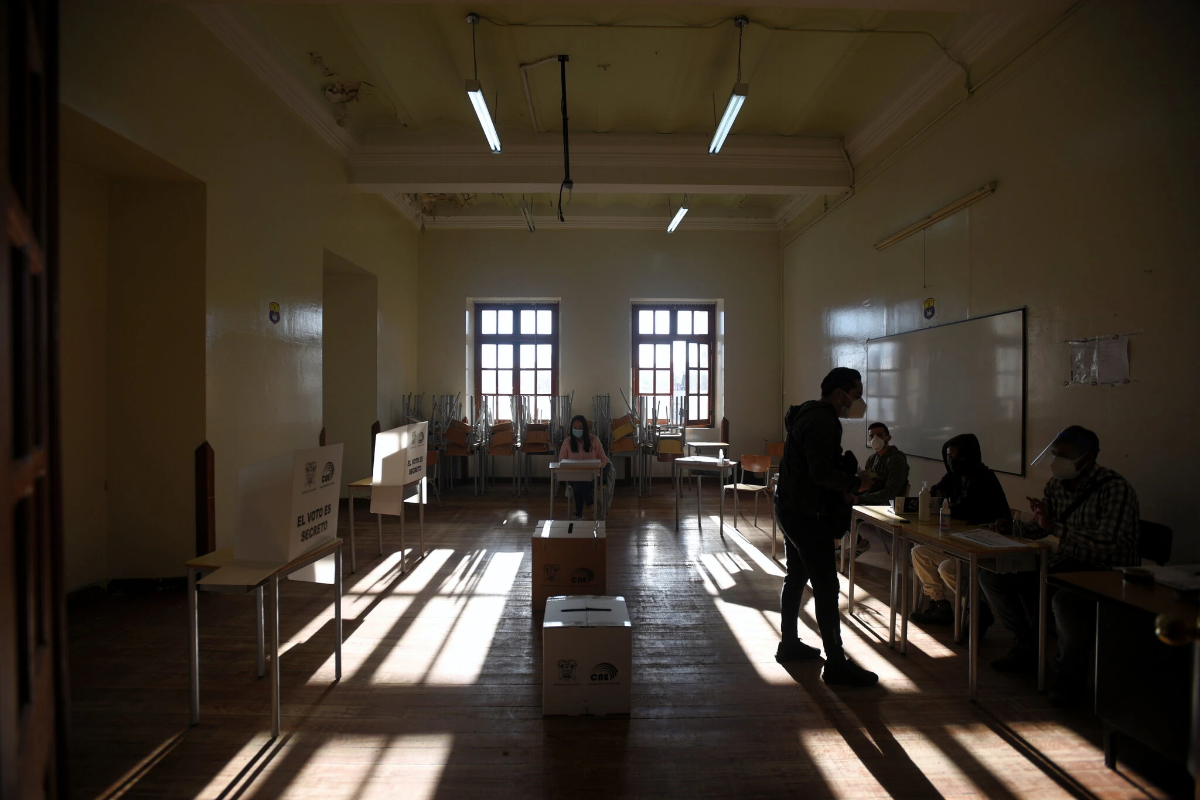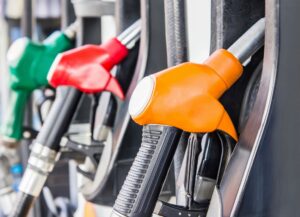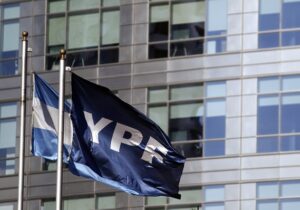
(New York Times, 7.Feb.2021) — Ecuadoreans are headed for a runoff presidential election following a vote Sunday in which a leftist economist drew the most votes, but not enough to secure an outright victory.
The economist Andrés Arauz, outpolled a conservative rival, Guillermo Lasso, and an Indigenous environmental activist, Yaku Pérez, according to the preliminary figures released by Ecuador’s electoral council after the polls closed. But Mr. Lasso And Mr. Pérez were in a virtual tie.
“Whoever wins will find it very difficult to govern,” said John Polga-Hecimovich, a Latin American politics expert at the United States Naval Academy. “They will need to reconcile the need to address social grievances with fiscal reality.”
Voters, battered by a deep recession and a pandemic that hit Ecuador early and hard, agreed.
“Whoever wins, we will all have to work hard the next day,” said Xavier Velarde, 26, a security worker from Quito.
The principal difference between the leading candidates was their stance on Rafael Correa, Ecuador’s populist former president, a divisive figure who continues to wield outsize influence on the country’s politics from Belgium, where he lives.
Millions of voters lined up at the polls, sometimes for hours, amid a pandemic that has ripped through the country, underlining the election’s high stakes and the country’s polarization.
“We need a change to put this country on the right track,” said Agustín Terán, 52, who works as a chauffeur. He voted for Mr. Lasso, he said.
Unknown to many Ecuadoreans until recently, Mr. Arauz was propelled to the top of the race after becoming the candidate of the political movement headed by Mr. Correa. He ran on the promise of ending the economic austerity of the current government and restoring the heavy social spending of Mr. Correa’s terms, which coincided with a boom in commodity export prices.
Ecuador’s high debt and weak oil prices, as well as the policy constrains caused by the use of the American dollar as official currency, will make it difficult for him to meet many of his promises if he wins the next round, analysts said.
A charismatic former president, Mr. Correa governed during an economic boom in the 2000s that helped many left-wing leaders in Latin America lift millions out of poverty and build a lasting popular following.
The leftist wave has since subsided, with most of its leaders were accused of corruption and authoritarian overreach. Mr. Correa himself was convicted of graft, faces 35 other criminal investigations and is barred from running again.
But like other powerful leaders of the so-called Pink Wave, he continues to loom large over the political landscape.
Mr. Correa handed some of the country’s oil revenue out in cash grants to the poor, and he built schools, roads and heavily subsidized housing, like the rows of three-story apartment blocks in Ciudad Bicentenario.
But the economy largely ground to a halt after oil prices fell in 2014, and the pandemic tipped stagnation into a crippling crisis. Economic activity shrank by an estimated 9 percent last year, when the coronavirus left hundreds of dead bodies on the streets of Ecuador’s second-largest city, Guayaquil.
The long political shadow cast by Mr. Correa on Ecuador underlines how popular South American leaders continue exerting power long after their time is officially up, often propped up by an enduring following.
Bolivia’s former president Evo Morales, who stepped down under military pressure after seeking a fourth term, has continued picking candidates for his party since returning from exile in November.
In Argentina, former President Cristina Fernández de Kirchner continues to exert influence over her party since returning to office as vice president in 2019.
In neighboring Peru, where presidential elections will be held in April, the daughter of the jailed authoritarian former president, Alberto Fujimori, is running second in some campaign polls, although the race remains volatile.
And in Cuba, Nicaragua and Venezuela, once-popular leaders or their protégés have sidestepped free and fair elections altogether to perpetuate their rule.
Mr. Correa’s successor, former Vice President Lenín Moreno, wanted to see Ecuador break that mold, arguing that leaders with too tight a grip on power are unhealthy for democracies.
“The eternalizing of power, unfortunately, leads those who wield it to acquire malice, which on more than one occasion has ended in corruption and even crimes against humanity,” Mr. Moreno said in an interview during his visit to Washington last month. “When your period ends, a leader has to say, ‘Right, enough.’”
After winning election in 2017, Mr. Moreno broke with his former ally and radically reversed the nation’s course, abandoning Mr. Correa’s leftist populism and anti-imperialist rhetoric for a conservative economic policy and closer ties to Washington.
Mr. Moreno said he had also sought to rebuild the democratic institutions damaged by what he called his predecessor’s disdain for the rules. He oversaw the restructuring of the top court to make it more independent, renegotiated the national debt and stopped official attacks on the news media.
“What they built, unfortunately, had lost direction,” Mr. Moreno said, referring to the previous administration.
Mr. Moreno chose not to seek re-election, and reinstated presidential term limits abolished by Mr. Correa. His administration also undertook the corruption investigations that resulted in the former president’s conviction and the jailing of eight of his ministers.
But Mr. Moreno’s austerity measures made him highly unpopular, leaving many Ecuadoreans clamoring for Mr. Correa’s return.
Mr. Correa said the corruption charges against him were political and called Mr. Moreno “the worst traitor in Ecuador’s history.”
He said the economic austerity measures should be scrapped and the top judges installed by Mr. Moreno replaced. The president and the attorney general investigating him, Mr. Correa said, will ultimately end up in jail.
Such all-or-nothing politics reflect the costs of lingering Latin American leaders such as Mr. Correa, said Risa Grais-Targow, an analyst at Eurasia Group, a political risk consultancy.
“Everything becomes a referendum on Correa,” she said. “The results are these constant swings back and forth, with leaders changing the system as they see fit before their successors try to undo it.”
These swings undermine economic stability and investor confidence, making it harder for the nation to advance, Ms. Grais-Targow said.
Mr. Correa said he would continue living abroad, but defended his enduring political ambitions. He said he would advise Mr. Arauz, claiming to be “in perfect synchrony” with the candidate.
“What would be the problem?” Mr. Correa said when asked if he would run for office in the future. “Leaderships are desirable, no country has developed without leadership.”
Political analysts say whoever wins will struggle to meet promises of a speedy recovery. The national coffers are empty, and the bulk of the country oil exports go to China as repayment on Chinese loans.
“The situation is not the same, the economy is not the same,” said José Fernández, a pensioner in Ciudad Bicentenario, referring to Mr. Correa’s boom years. “It’s going to be tough.”
____________________
José María León Cabrera reported from Quito, Anatoly Kurmanaev from Caracas, Venezuela, and Natalie Kitroeff from Mexico City.

